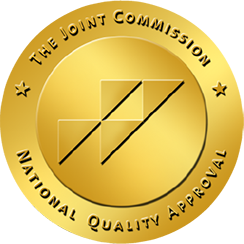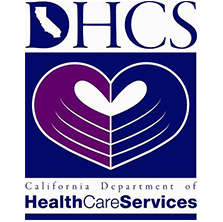








New Leaf Detox and Treatment
Verified Center
This provider's information has been quality-checked by Recovery.com's Research Team for accuracy and completeness, including center verification through appropriate third-party organizations.
Treatment Focus
This center treats substance use disorders and co-occurring mental health conditions. Your treatment plan addresses each condition at once with personalized, compassionate care for comprehensive healing.
Primary Level of Care
Offering intensive care with 24/7 monitoring, residential treatment is typically 30 days and can cover multiple levels of care. Length can range from 14 to 90 days typically.
Treatment Focus
This center treats substance use disorders and co-occurring mental health conditions. Your treatment plan addresses each condition at once with personalized, compassionate care for comprehensive healing.
Primary Level of Care
Offering intensive care with 24/7 monitoring, residential treatment is typically 30 days and can cover multiple levels of care. Length can range from 14 to 90 days typically.
Provider's Policy
We Accept All PPO Insurance. Insurance can cover up to 100% of the cost of treatment. Our team is standing by to help you or your loved one take the first step. Call or fill out our form below to have a specialist reach out to you. All form submissions are completely confidential and free of charge.
New Leaf Detox and Treatment
New Leaf Detox and Treatment
About New Leaf Detox and Treatment
New Leaf Detox & Treatment distinguishes itself with a highly individualized approach to addiction treatment. Situated in the recovery-rich environment of Southern California, the center provides the necessary care for the initial stages of recovery–detox and residential treatment. Specializing in a wide range of substance use disorders and co-occurring mental health conditions, New Leaf focuses on helping clients achieve sustainable, lifelong recovery through genuine self-transformation.
Detox and Residential Treatment
New Leaf Detox & Treatment provides comprehensive detox and residential care in peaceful surroundings 10 minutes north of beautiful Dana Point. Their detox program gives clients a safe and medically supervised environment in which to manage withdrawal symptoms with 24/7 support. Clients can choose to use medication-assisted treatment (MAT) during detox to make the process more comfortable and help with cravings. Following detox, clients transition seamlessly into residential treatment, where they experience a structured, immersive program in comfortable facilities.
Innovative Clinical Offerings and Flexible Policies
New Leaf is committed to providing highly tailored treatment for each individual. Rather than following a one-size-fits-all model, the clinical team collaborates with clients to develop personalized interventions, regularly tracking progress and adjusting treatment plans to meet each person's unique needs and goals. The center also offers a flexible tech policy, allowing clients controlled access to cell phones after 14 days with clinical approval, helping them stay connected while maintaining focus on recovery. Additionally, New Leaf’s pet-friendly environment allows clients to bring their animal companions, easing a common obstacle to entering treatment.
Holistic Care and Evidence-Based Therapies
New Leaf Detox & Treatment integrates holistic care with psychotherapy to treat addiction and co-occurring disorders. Their programs combine traditional methods like cognitive-behavioral therapy (CBT) and medication management with holistic practices like yoga, meditation, and physical exercise. By using a well-rounded approach, New Leaf addresses the physical, psychological, emotional, and spiritual dimensions of addiction, creating a deep mind-body recovery experience.
Highlights from the Center
Highlights
These highlights are provided by and paid for by the center.
Holistic Approach
Pet Friendly
Tech Friendly
Trauma Treatment
Center Overview
Treatment Focus
This center treats substance use disorders and co-occurring mental health conditions. Your treatment plan addresses each condition at once with personalized, compassionate care for comprehensive healing.
Joint Commission Accredited
The Joint Commission accreditation is a voluntary, objective process that evaluates and accredits healthcare organizations (like treatment centers) based on performance standards designed to improve quality and safety for patients. To be accredited means the treatment center has been found to meet the Commission's standards for quality and safety in patient care.
Recently helped 2 people via Recovery.com

New Leaf Detox and Treatment
Recently helped 2 people via Recovery.com
Insurance Accepted
Cash Pay Rates
Estimated Cash Pay Rate
Center pricing can vary based on program and length of stay. Contact the center for more information. Recovery.com strives for price transparency so you can make an informed decision.




Recovery.com Verified Listing
Recovery.com verified that the name, location, contact information and license to operate for this treatment provider are valid and up-to-date.

Joint Commission Accredited

Licensed by California DHCS

NAATP Member
Recovery.com is an independent, third-party mental health resource. Verification does not imply endorsement and does not guarantee the quality of treatment services.
Meet Your Care Team

Alex Hall
Chief Operating Officer
ICADC-II

Ashley Gerken
Clinical Director
Bachelor’s Degree in Criminal Justice and Psychology

Bryce Poirier
Program Manager

Christine Hughes
Director of Admissions

Josh Hamburg
Chief Executive Officer
CADC-CS, ICC

Dr. Tami Tucker
Clinical Supervisor
Licensed Clinical Psychologist

Dr. Sanjai Thankachen
Medical Director

Tisha Rodriguez
Lead Behavioral Health Technician
Bachelors in Psychology

Tracey Wilson
Licensed Vocational Nurse & Medical Liaison
LVN
Your Care Options
Specializations
Alcohol
Using alcohol as a coping mechanism, or drinking excessively throughout the week, signals an alcohol use disorder.
Anxiety
Anxiety is a common mental health condition that can include excessive worry, panic attacks, physical tension, and increased blood pressure.
Pet Friendly
For greater comfort and healing, pet-friendly treatment centers welcome dogs and animal companions to stay with their owners while they attend treatment.
Drug Addiction
Drug addiction is the excessive and repetitive use of substances, despite harmful consequences to a person's life, health, and relationships.
Holistic
A non-medicinal, wellness-focused approach that aims to align the mind, body, and spirit for deep and lasting healing.
Residential
In a residential rehab program, patients live onsite, with access to daily treatment and 24-hour care. An average stay is 30-90 days.
Trauma
Some traumatic events are so disturbing that they cause long-term mental health problems. Those ongoing issues can also be referred to as "trauma."
Who We Treat
Young Adults
Emerging adults ages 18-25 receive treatment catered to the unique challenges of early adulthood, like college, risky behaviors, and vocational struggles.
LGBTQ+
Addiction and mental illnesses in the LGBTQ+ community must be treated with an affirming, safe, and relevant approach, which many centers provide.
Men and Women
Men and women attend treatment for addiction in a co-ed setting, going to therapy groups together to share experiences, struggles, and successes.
Midlife Adults
For adults ages 40+, treatment shifts to focus on the unique challenges, blocks, and risk factors of their age group, and unites peers in a similar community.
Treatment Services
Detox
Detox fully and safely removes toxic substances from the body, allowing the next steps in treatment to begin with a clean slate.
Residential
In a residential rehab program, patients live onsite, with access to daily treatment and 24-hour care. An average stay is 30-90 days.
Approaches
Evidence-Based
A combination of scientifically rooted therapies and treatments make up evidence-based care, defined by their measured and proven results.
Holistic
A non-medicinal, wellness-focused approach that aims to align the mind, body, and spirit for deep and lasting healing.
Individual Treatment
Individual care meets the needs of each patient, using personalized treatment to provide them the most relevant care and greatest chance of success.
Therapies
1-on-1 Counseling
Patient and therapist meet 1-on-1 to work through difficult emotions and behavioral challenges in a personal, private setting.
Meditation & Mindfulness
A practiced state of mind that brings patients to the present. It allows them to become fully aware of themselves, their feelings, and the present moment.
Trauma-Specific Therapy
This form of talk therapy addresses any childhood trauma at the root of a patient's current diagnosis.
Rational Emotive Behavior Therapy
A type of cognitive therapy that identifies negative self-defeating thoughts and behaviors, rewriting beliefs to be positive, empowering, and present.
Mindfulness Therapy
This ancient practice can be mental, emotional, and even spiritual. In meditation, you focus your attention on the present moment without judgement.
Adventure Therapy
This experiential approach uses the physical and emotional challenges of outdoor activities as tools for personal growth.
Attachment-Based Family Therapy
ABFT is a trauma-focused therapy that teaches you to form healthy relationships by rebuilding trust and healing attachment issues formed in childhood.
Conditions We Treat
Anger
Although anger itself isn't a disorder, it can get out of hand. If this feeling interferes with your relationships and daily functioning, treatment can help.
Anxiety
Anxiety is a common mental health condition that can include excessive worry, panic attacks, physical tension, and increased blood pressure.
Bipolar
This mental health condition is characterized by extreme mood swings between depression, mania, and remission.
Depression
Symptoms of depression may include fatigue, a sense of numbness, and loss of interest in activities. This condition can range from mild to severe.
Obsessive Compulsive Disorder (OCD)
OCD is characterized by intrusive and distressing thoughts that drive repetitive behaviors. This pattern disrupts daily life and relationships.
Post Traumatic Stress Disorder
PTSD is a long-term mental health issue caused by a disturbing event or events. Symptoms include anxiety, dissociation, flashbacks, and intrusive thoughts.
Trauma
Some traumatic events are so disturbing that they cause long-term mental health problems. Those ongoing issues can also be referred to as "trauma."
Substances We Treat
Alcohol
Using alcohol as a coping mechanism, or drinking excessively throughout the week, signals an alcohol use disorder.
Benzodiazepines
Benzodiazepines are prescribed to treat anxiety and sleep issues. They are highly habit forming, and their abuse can cause mood changes and poor judgement.
Co-Occurring Disorders
A person with multiple mental health diagnoses, such as addiction and depression, has co-occurring disorders also called dual diagnosis.
Cocaine
Cocaine is a stimulant with euphoric effects. Agitation, muscle ticks, psychosis, and heart issues are common symptoms of cocaine abuse.
Drug Addiction
Drug addiction is the excessive and repetitive use of substances, despite harmful consequences to a person's life, health, and relationships.
Ecstasy
Ecstasy is a stimulant that causes intense euphoria and heightened awareness. Abuse of this drug can trigger depression, insomnia, and memory problems.
Heroin
Heroin is a highly addictive and illegal opioid. It can cause insomnia, collapsed veins, heart issues, and additional mental health issues.
Methamphetamine
Methamphetamine, or meth, increases energy, agitation, and paranoia. Long-term use can result in severe physical and mental health issues.
Languages
Aftercare
Care Designed for Your Needs
Personal Amenities
Amenities
Special Considerations
Clients can bring their own pet(s)
For greater comfort and healing, pet-friendly treatment centers welcome dogs and animal companions to stay with their owners while they attend treatment.
Pet Friendly
For greater comfort and healing, pet-friendly treatment centers welcome dogs and animal companions to stay with their owners while they attend treatment.
Flexible technology policies
Centers with flexible technology policies allow professionals to stay in touch with work and give patients a greater sense of connection and normalcy.
Activities
Yoga
Yoga is both a physical and spiritual practice. It includes a flow of movement, breathing techniques, and meditation.
Off-Site Activities
Off-Site Amenities

Recently helped 2 people via Recovery.com
Learn More About the Center
A Road to a New Leaf
Check out this infographic of the often-winding path to recovery.
Psychological Testing
Learn how mental health professionals come to understand a person’s mental state and personality.
When to Consider Rehab
Discover the right time to seek treatment.
Anxiety and Addiction
Read about the impact of addiction on anxiety, one of the most common co-occurring disorders.





